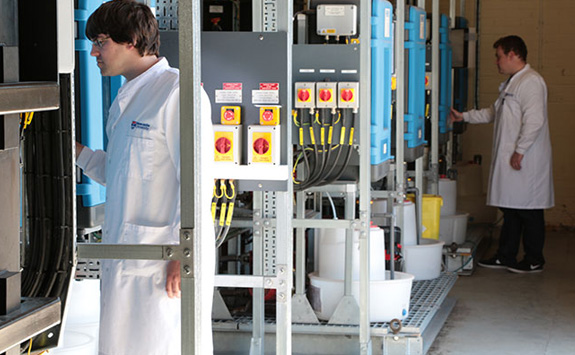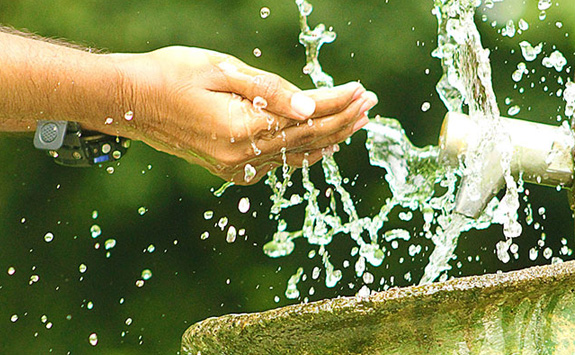About Us
An international centre of research excellence and experimentation for wastewater management technology.
We are a world-leading research space
We are developing cutting-edge solutions for sustainable wastewater treatment. We are delivering:
- the ability to reduce the costs and timescales of designing novel biological treatment processes
- innovative technologies that harness biology to clean wastewater
- demonstrations of sustainable approaches to wastewater treatment never tested before
We are reducing barriers to innovation by:
- sharing the costs
- offering control at scale
- accounting for uncertainty by allowing variation to be studied
At BEWISe, Newcastle University and Northumbrian Water Group are working together to:
- speed up innovation in sustainable wastewater treatment
- experiment with low-energy biological treatment technologies
- develop low-cost ways to generate energy from waste
Testing innovative ways of treating wastewater
Microbes are key to creating sustainable pathways for clean water and sanitation. There are 1018 individual bacteria and thousands of species in a treatment plant. BEWISe makes it possible to validate new simulations of how microbes interact within a treatment plant.
We explore different types of bacteria and identify how they behave in different sewage treatment processes.
We provide the resources to reduce the costs and timescales of designing novel biological treatment processes.
We investigate sustainable approaches to wastewater treatment that have rarely been tested before at this scale. We test and replicate different elements of the wastewater treatment process. This allows us to develop new ways of treating wastewater with greater confidence.
We are speeding up the transition from existing energy-intensive treatment processes to low-carbon alternatives with lower running costs.
We carry out research on low-temperature wastewater treatment for renewable energy generation.

